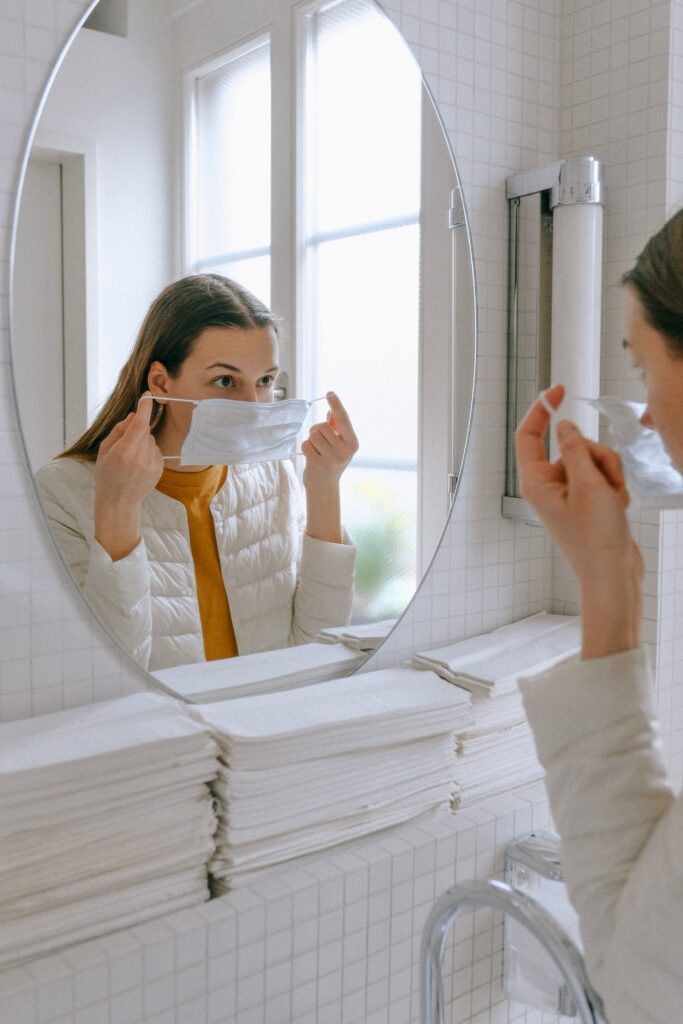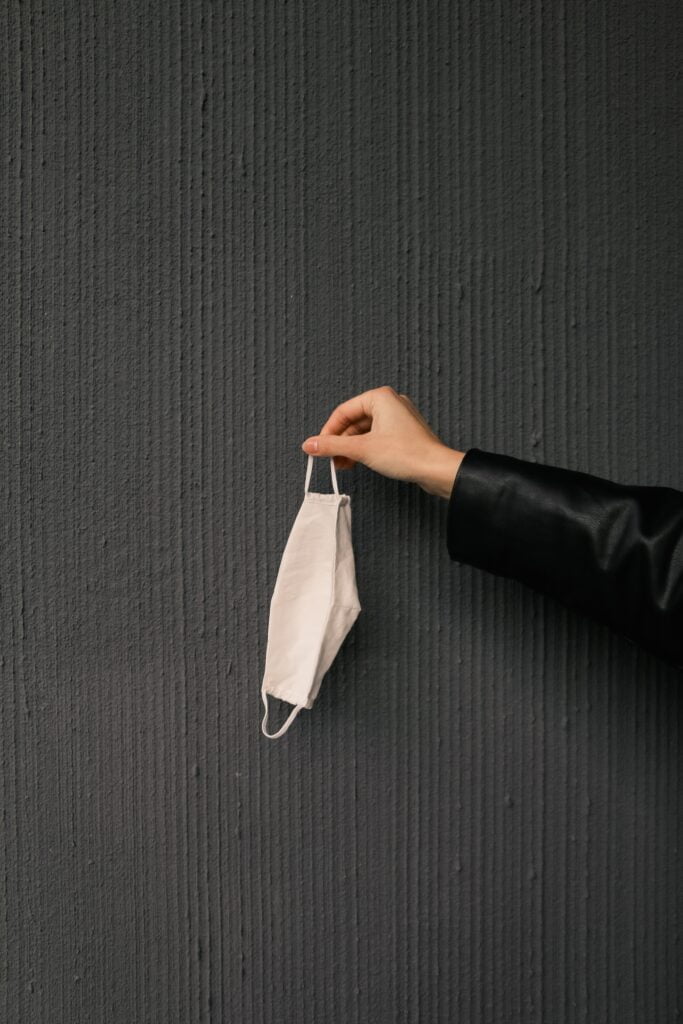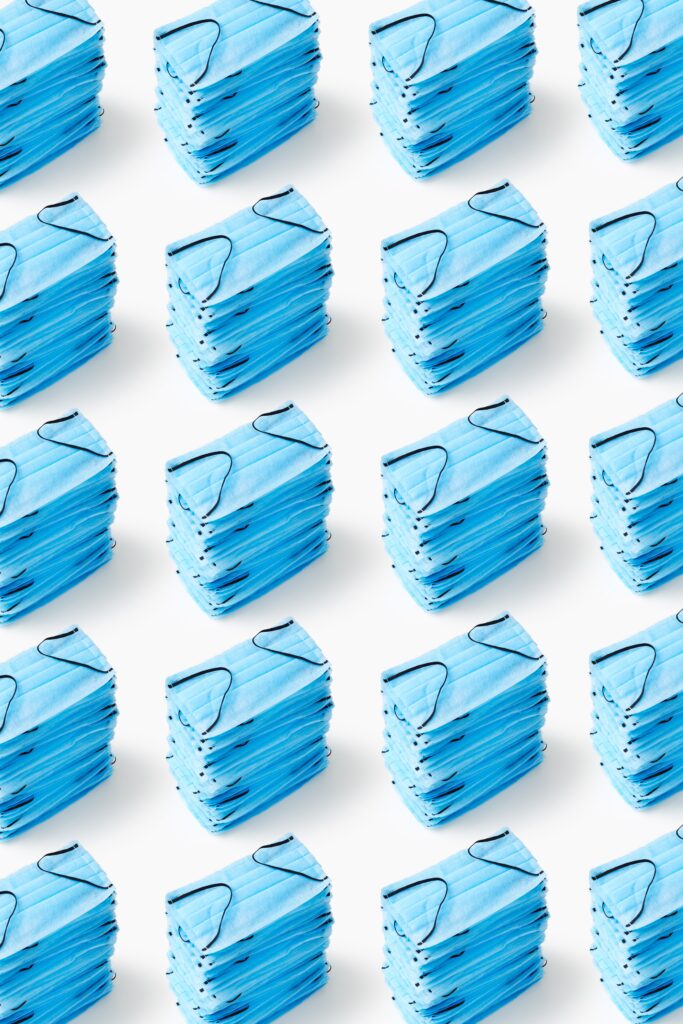With the rise of COVID-19, wearing a face mask has now become an essential part of our daily routine. Face masks help slow the spread of the coronavirus by acting as a physical barrier that limits its airborne transmission.
However, developing acne breakouts from wearing a face mask is a common problem among many people. This skin condition is popularly known as “maskne,” and it is brought about by your breath getting trapped inside the mask. This creates a warm, humid environment that serves as an ideal setting for microbes to grow, including pimple-causing bacteria.
Fortunately, there are ways to address this problem. Read on below to know how you can avoid getting acne from your face mask.

Use Antimicrobial Face Masks
To avoid getting acne, consider buying antimicrobial face masks. These face masks are treated with a special antimicrobial formula that helps prevent microbes from thriving on the fabric’s surface, thereby protecting your skin from pathogens that can potentially cause acne breakouts.
Wash Your Face Masks After Every Use
Microbes and dirt can easily collect in your face masks, and this can cause acne breakouts. If you’re using a reusable face mask, make sure to wash it after every use. Use lukewarm water and a hypoallergenic laundry detergent. Let it air dry before storing it in a clean container or plastic bag to keep it pristine and ready for use.

Take Mask Breaks Every 4 Hours
The American Academy of Dermatology recommends taking a 15-minute mask break every 4 hours. Find a place where you can safely remove your face mask, such as a well-ventilated area, an outdoor spot with low foot traffic, or inside your car. Taking mask breaks has been found to help reduce skin problems caused by face masks.
Wash Your Face Regularly Using A Gentle Cleanser
Wearing a face mask all day can cause intense sweating and build-up of dirt. As such, it is important to have a reliable skin care routine to help keep your face clean and healthy. Start by washing your face with lukewarm water and a gentle facial cleanser. A facial cleanser can help remove oil, sweat, and dirt, which cause clogged pores and acne breakouts. It is also recommended to apply a moisturiser to avoid dry skin. Sticking to a regular skin care routine can help prevent skin problems caused by wearing face masks.
Think Twice About Wearing Makeup

If you’re heading out and have to wear a face mask, you might want to think twice about putting on makeup. This is because some beauty products can actually aggravate the oil and sweat build-up beneath your mask, which increases your chances of getting pimples. If you really have to wear some makeup, make sure to use products that are labelled “non-comedogenic.” These products are specially formulated so as not to cause pore blockages, which can lead to breakouts.
Be Mindful Of The Masks You Wear
Sometimes, it’s all about wearing the right masks the right way. Avoid cloth masks made of synthetic fabrics such as rayon, spandex, or nylon, as these materials tend to irritate the skin. Instead, look for masks that are made of natural, more breathable fabrics such as cotton. Another thing to consider when choosing a mask is the fit. As much as possible, avoid ill-fitting masks. Make sure to wear a mask that fits snugly yet comfortably, as you are less likely to touch and adjust a properly fitting mask. Lastly, look for masks that have at least two layers of fabric to ensure adequate protection for you and the people around you.
Do Not Reuse Disposable Face Masks

Disposable face masks, like surgical masks, are one-time use only and are meant to be discarded after use. Reusing disposable face masks is not recommended because the mask is already considered to be contaminated and therefore may not be as effective in protecting the wearer. In addition, a dirty face mask creates an ideal environment for microbes to grow on, resulting in unwanted acne breakouts and skin irritation.
Apply A Moisturiser
A good moisturiser keeps your skin hydrated and reduces friction between your face and your mask by providing a thin barrier. Choose a moisturiser that contains hyaluronic acid, dimethicone, or ceramides as these products provide extra protection. Avoid products with added fragrance if you have sensitive skin. Finding the best facial moisturiser might take some trial and error, but the rewards are worth it especially when you’ve been suffering from bad maskne. For an extra boost of hydration, book a rejuvenating facial.
Having maskne may be frustrating, but it is important to remember that the benefits of wearing a face mask far outweigh this problem. Fight maskne by using antimicrobial face masks, sticking to a skin care routine that works, and wearing the right kind of mask.


1 comment
great tips, still having to wear them for work